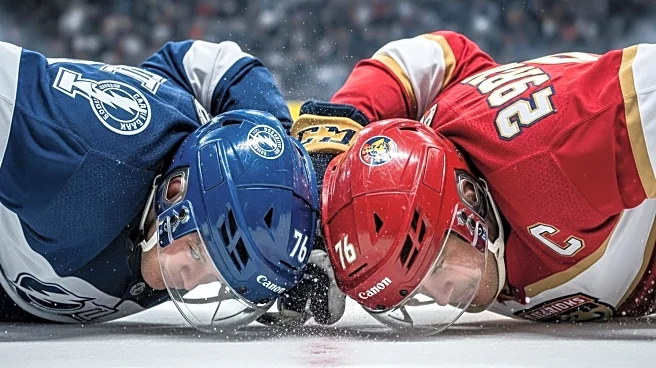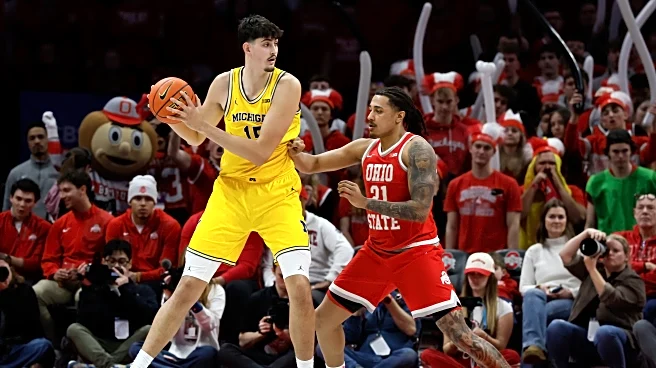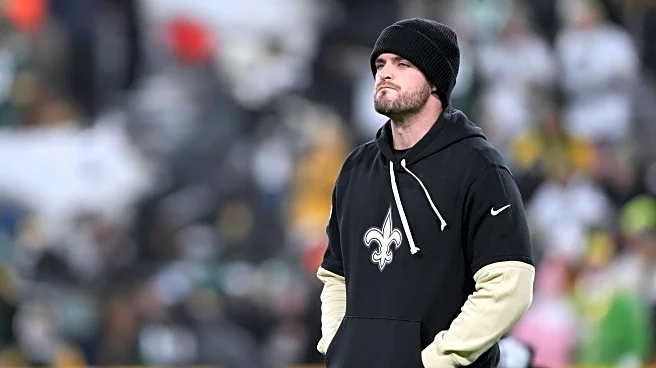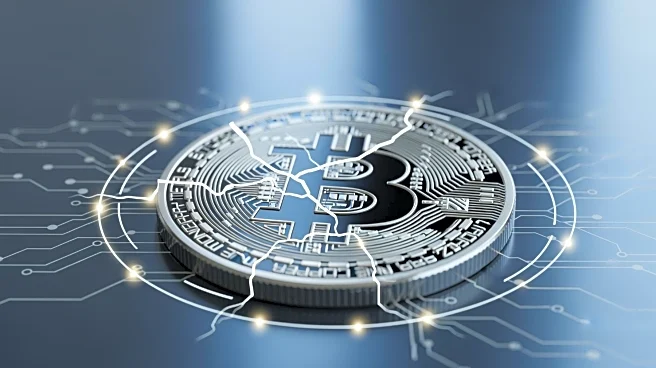What's Happening?
The Tampa Bay Lightning faced the Florida Panthers in a preseason finale that turned chaotic, resulting in a 7-0 victory for the Panthers. The game was marked by an unusually high number of penalties, totaling 65 for 312 minutes, including 13 game misconduct penalties. The match saw 13 players ejected, with one player, Niko Mikkola, scoring a goal after being ejected, which was later rescinded. Florida forward Evan Rodrigues described the game as 'silly' and 'stupid,' indicating that it did not resemble typical hockey. The penalty parade began early in the game when Tampa Bay's Scott Sabourin, who was called up for the game, received a major penalty after only 19 seconds of play. The chaotic nature of the game was further highlighted by the fact that Florida had 17 power-play opportunities.
Why It's Important?
This preseason game underscores the intense rivalry between the Tampa Bay Lightning and the Florida Panthers, two teams with recent success in the Stanley Cup Finals. The high number of penalties and ejections reflect the competitive and sometimes volatile nature of their matchups. Such incidents can impact team dynamics and player morale, potentially influencing their performance in the regular season. The chaotic nature of the game also raises questions about sportsmanship and the enforcement of rules in professional hockey, which could lead to discussions on how to manage such situations in the future.
What's Next?
The regular season is set to begin soon, with the Chicago Blackhawks opening against the Panthers. Both the Lightning and Panthers will need to regroup and focus on their upcoming games, ensuring that such chaotic incidents do not affect their regular season performance. Coaches and players may need to address discipline and strategy to avoid similar situations. The NHL might also review the game to consider any necessary adjustments to rules or enforcement to prevent excessive penalties and ejections in future games.
Beyond the Headlines
The game highlights the cultural aspect of hockey rivalries, where intense competition can sometimes lead to unsportsmanlike conduct. It also raises ethical questions about player safety and the role of officials in maintaining order during games. Long-term, such incidents could influence how rivalries are perceived and managed within the league, potentially affecting fan engagement and the sport's reputation.










